Last Updated on February 8, 2022
WhatsApp is the most used messaging app having more than 2 billion active users globally as of March 2020. The users are not only plentiful but they are also active on the app sending over 65 billion messages on the daily basis.
However, in the last few years, WhatsApp was not limited to just sharing messages or posting status, but this golden platform is also getting used by online retailers to engage with their customers. They can scale their customer service with the help of WhatsApp.
WhatsApp has released its WhatsApp API which now wonders everyone the potential of WhatsApp eCommerce integration. In simple words, it will act like a chatbot for the customers where they can ask queries or get updates, however more powerful than any other chatbot.
Chatbots have had a major influence on the eCommerce industry in particular. The eCommerce chatbots are revolutionizing the way companies used to interact with their customers for resolving their queries. They give a highly personalized experience with a faster and accurate response. They can cut the operational cost of an eCommerce store by 30%. Nearly half of the businesses are planning to spend more on chatbots than mobile applications. 64% of the internet users find the 24 x 7 availability of chatbots as their best feature.
Learn More: Top Chatbot Development Platforms For Ecommerce Websites
Overview Of WhatsApp Market
Let’s know about the WhatsApp major markets
Although WhatsApp is the top messaging platform across, it is still striving to capture the top spot in nearly 25 countries including the USA, France, Canada, and Australia. Currently, India is the biggest market of WhatsApp with 200 million users followed by Brazil and the USA.
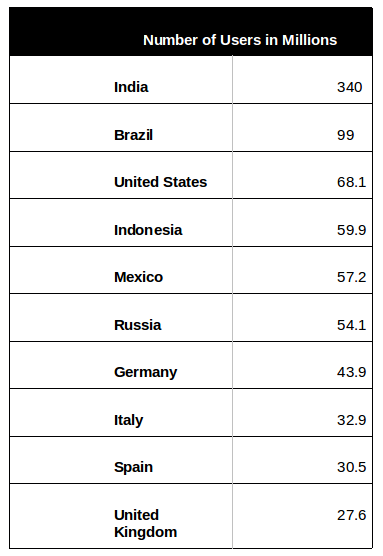
But if we check the WhatsApp market in terms of penetration then the picture is quite different. It has the highest penetration in Saudi Arabia followed by Malaysia and Germany.
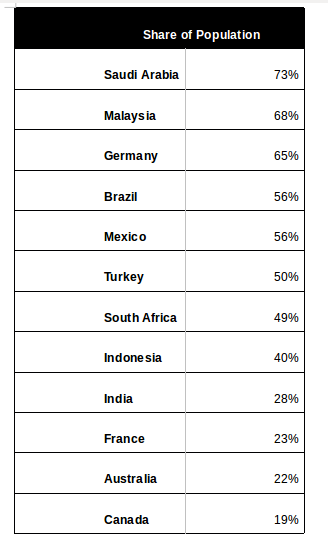
Benefits Of Using WhatsApp Chatbot For Your Online Store
While running an eCommerce store, the most difficult task is to convert your site visitor into long-term customers and making a profit through sales. Using a WhatsApp chatbot for your eCommerce site will automate the process of resolving the queries of the customer. It will also give relief to your customer care team from the irrelevant customer queries along with the improvement in efficiency.
Some of the benefits of WhatsApp Chatbot in your eCommerce store are
- Customers can do real-time conversations without delay and get instant answers to the queries
- ECommerce companies can assist the customer to communicate on their favorite platform and improve their shopping experience.
- The customers are able to take quick actions for the answers they are getting from the WhatsApp chatbot
- Build trust and loyalty among customers
- End-to-End Encryption in WhatsApp assures highly secure communication
- Better brand recognition
Use Cases Of WhatsApp For Ecommerce Stores
From the point of contact on the eCommerce store, a customer went through many different stages. WhatsApp will help you to face multiple touchpoints of the customer journey which initiates with customer acquisition. Let’s understand each use case.
Customer Acquisition
There are many different ways to acquire customers through WhatsApp chatbot. You can follow the visitors on your site from the web/mobile browser to the “real world”. Here are some of the ways:
A usual chatbot just waits at the corner of your site to get noticed by the user. Instead of this if you use the WhatsApp chat bubble it will invite the visitors on your site to answer their questions using WhatsApp.
Product/Category Page Button
The customer can get notifications, news, or any other update through a channel that they check and use frequently. For e.g., if a customer is looking for a product that is currently out of stock then he will receive a notification when it will be in stock which can ultimately lead to conversion.
Campaign Ads CTA
You can use a click-to-WhatsApp approach for paid campaigns which will help in getting more acquisition. When a user will click on your Facebook or Google ad, then they would be invited to the WhatsApp conversation instead of the landing page.
These strategies are interactive and simple ways to capture visitors and make them your loyal customers.
Incentivized Sales
You can engage with your new and existing customers through the WhatsApp chatbot by incentivizing sales. There are two different methods of it:
- Engage users on bot by giving exciting discounts
- Direct customers from a coupon pop-up or landing page to the bot that will ask prospects a few key questions to activate the voucher in question
- Now the leads don’t have to undergo an awkward process such as email verification and can get instant gratifications with just a few message exchanges.
At the backend site, the bot will allow you to have complete control of the vouchers by:
- Communication with the shopping cart will also track if an existing customer uses that voucher
- Taking follows up from the customer if the customer hasn’t redeemed the voucher yet. It will ask why they haven’t redeemed and what they can do for them.

Personalized Experience
When the user agreed to be contacted on WhatsApp, you can get this data of the user automatically:
- Contact Number
- The country as per the country code on phone number
- WhatsApp user name (sometimes)
If you require more data then include that information as a part of opt-in. For e.g. you can use the opt-in to ask for the users’ residence city or actual name instead of relying on that username.
Based on this data, you can start providing a highly personalized experience to the users such as greeting users by their name, showing them a menu in a different language adjusted to their community, or initial messaging before asking any more information.
Quizzes
Sounds anomalous ostensibly, but quizzes are not like any other trends which easily get fade away. They have gained a consistent place among the most popular online experiences and users find these quizzes fun and interactive. You must definitely leverage them for your eCommerce store.
The two different benefits of using Quizzes in your WhatsApp chatbot are:
- When the customer interacts with a quiz, you get a lead and more data
- If the quiz is not just a form but is built for a particular customer profile, then the chatbot will collect data that will help it hyper-personalize the user’s experience in the future.
Product And Purchase Suggestions
Generally, the user interface allows this but product suggestion within a chatbot is not widely used. Still, there is no better scenario for bespoke suggestions than a one-on-one conversation.
While Facebook Messenger bot gives you the opportunity to create product carousel options within the conversation, in WhatsApp bot, the things are more limited.
To be honest, in selling or cross-selling you don’t need to have any fancy solutions. The user already had a conversation with the bot. Just use images, GIFs, send videos of the products, or mobile-responsive URL references.
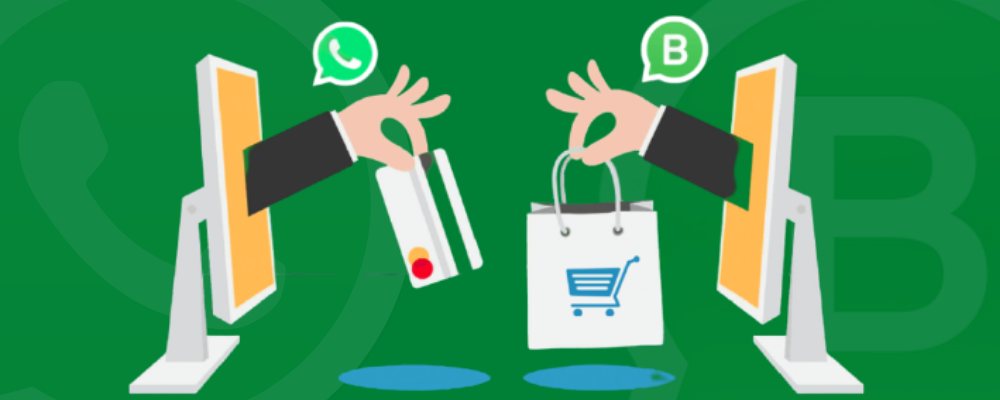
Help Guides
There are huge benefits of online shopping but still, the consumers feel helpless when they want to fire up a question to the nearby sales assistant as like in a brick-and-mortar store. Unfortunately, it takes a lot of time to have a conversation with a human being. Still, an overwhelming three-fourths of the customers expect to be served within 5 minutes. Henceforth, chatbots are so popular in eCommerce. They can easily and quickly handle the queries and the customers don’t need to wait.
WhatsApp gives the users the next level of experience as it is not only quick but also ubiquitous. The customer can continue the conversation even after leaving the desktop. It is also very user-friendly.
A product help guide is not about answering FAQs but highlights the benefits of the product, and resolves the common doubts and questions. Great use of such a guide is where the size plays a major role such as buying a snowboard, skis, or a bicycle.
Product Finder
Another use case of the WhatsApp chatbot is acting as Product Finder for the user. Unlike a help guide, it will help the customers to find a product by filtering the overwhelming sea of choices on the basis of their preferences. They don’t need to go through hundreds of pages to find their products and instead review the products in which they are interested.
The best strategy for this is to design a quiz-style product finder, where the customer will go through a series of questions and hence guiding what products suit them.
Abandoned Cart Recovery
Shopping Cart Abandonment is one of the most important issues which eCommerce companies are still facing. In 2018, the abandoned cart rate across different industries cross 75%.
Mostly the eCommerce companies deal with this problem by sending notifications emails or reminders to the customers. However, the response rate from the customer’s end is not so attractive. Only 40% of the emails are opened by the users and 21% results in a click and then 50% of these results in a purchase.
Messaging marketing can help you with better results. In 2019, the global average SMS open rate was nearly 94%, despite people use more messaging apps. On the other side, the Facebook Messenger Campaigns got a 98% open rate.
Transaction Confirmations, Invoices, & Notifications:
A customer is not convinced until he gets all the confirmations such as payment received successfully, the order has been processed, etc. But with WhatsApp end-to-end encryption, it is possible to send crucial sensitive information to the customers instantly and securely. Also, the customer will not put such messages into junk.
Post-Sale Support
After the customer receives his product, you can use WhatsApp for a post-purchase check-in. Sending product-focused WhatsApp messages will increase your presence in customers’ minds when customer experience is concerned.
If the customer replies to your paid HSM template message, then either you can use a bot or a customer executive to reply. The best thing is that if you reply within 24 hours of the customer support window then the human-driven conversation will not cost you anything.
Also Read:Whatsapp Adds A Shopping Button To Enter eCommerce Market
Product Lifestyle Offers:
There are a huge number of products that are purchased online and have a high predictable consumption cycle. Suppose you know that the customer is running out of a product but he hasn’t ordered yet. Maybe he was busy or forgot or checking other possible options.
But you shouldn’t miss this opportunity. Use WhatsApp API and ask your customers, initiating from Hi, how’s your supply of products holding up? If you require a new supply, please let us know for a quick reorder.
WhatsApp eCommerce integration can help you in two different ways:
- Sending timely notifications considering the average customer reorder cycles or a personalized recycle of a customer
- Combine replenishment notifications with subscription programs as conversion rates for subscriptions are much higher when customers are already making recurring purchases.
Shipping Updates
When customers make orders online, there is a constant urge in the customers to know how much time will it take to get delivered, and hence they prefer to get shipping updates. You can use WhatsApp to send shipping updates for every changing location of the package without annoying the users. Also, the users don’t need to open the mails and click on the tracking number to know the update.
WhatsApp Pros & Cons
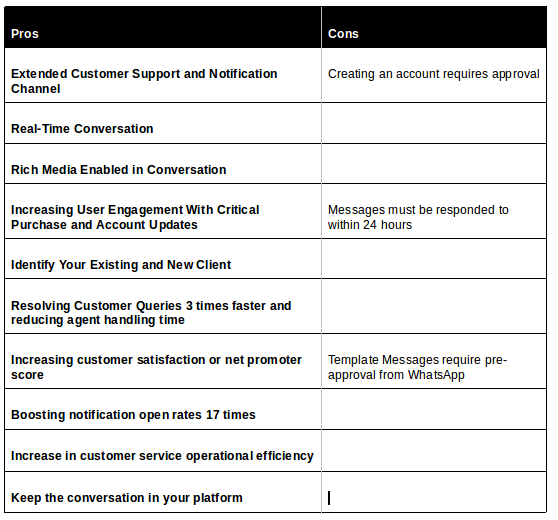
Wrapping Up
WhatsApp is among the most used app by people across every point across the globe. If your eCommerce store is having a presence on this messaging app then it can exponentially increase your sales. Want to integrate WhatsApp in your eCommerce store? Please reach us. We, at Emizentech, the best eCommerce development company in India, are having expertise in meeting such custom requirements.

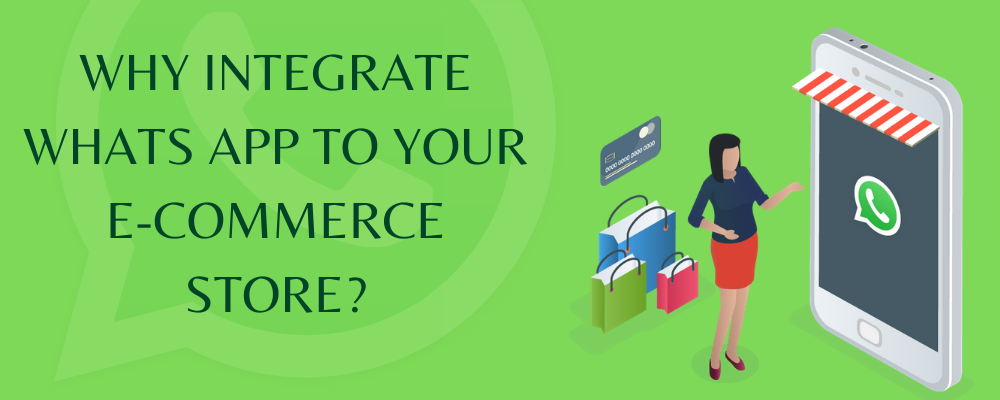
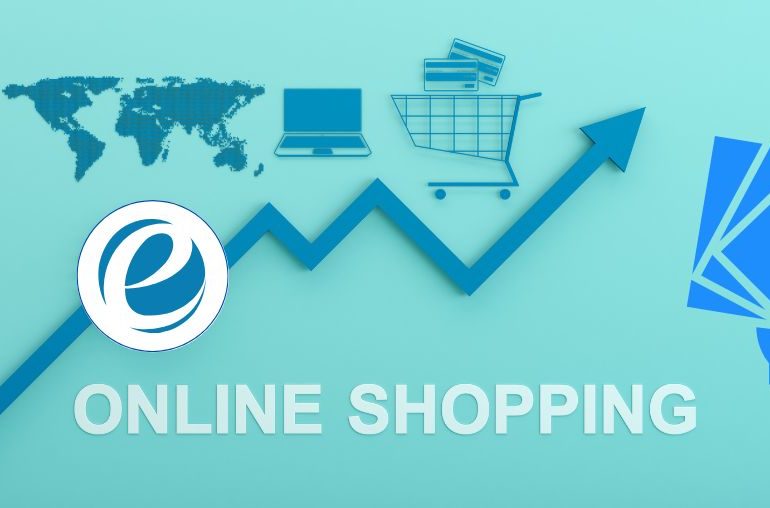
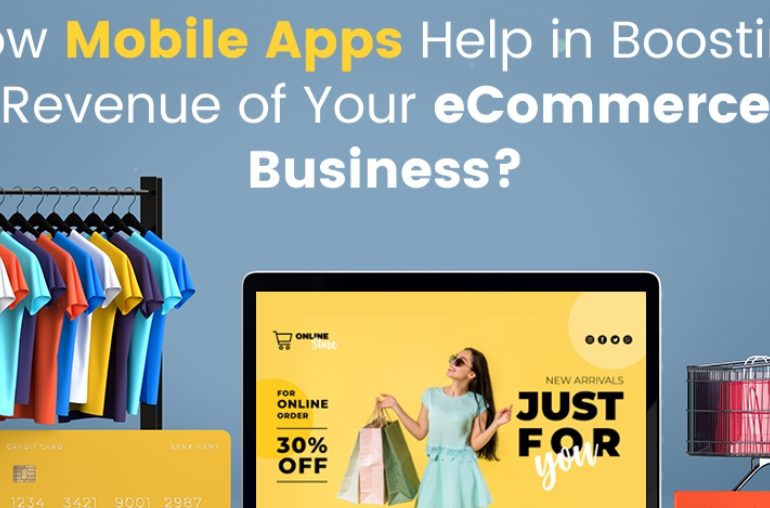
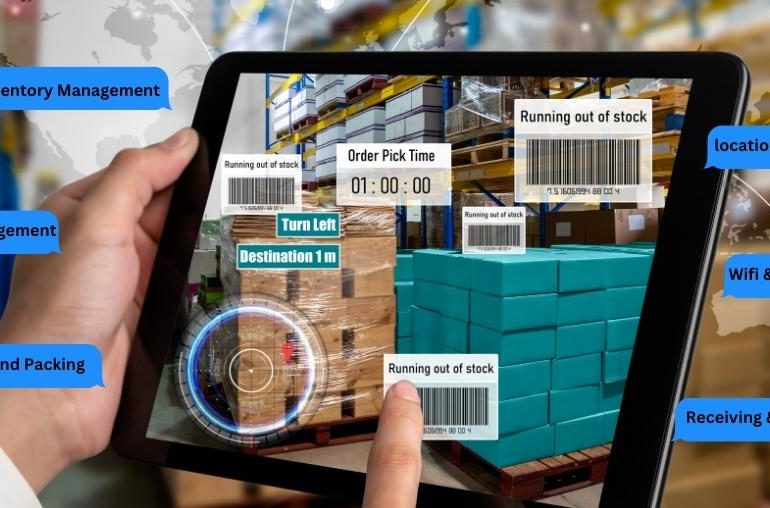
 USA
USA UK
UK Singapore
Singapore